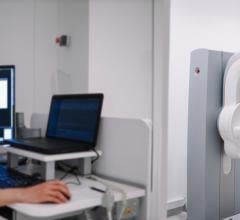
Two decades of research on the masking risk of dense breast tissue by mammography screening is indisputable. As the density of the breast increases, the reliability of a mammogram to see, and in turn, detect breast cancer decreases. Additionally, since 1976, researchers have concluded that having dense breast tissue is also an independent risk factor for breast cancer. Unlike the masking risk, the extent of the causal risk of dense breast tissue has been fiercely debated in the literature and by healthcare professionals from having a slight, to moderate, to strong risk of developing breast cancer. Several studies conclude that having dense breast tissue is a larger risk than having a family history of the disease. According to the American Cancer Society, heterogeneously or extremely dense breast tissue (greater than 50 percent dense) confers a 2.1 to 4 times greater risk of breast cancer as compared to women with less dense breasts, similar to having one first-degree relative with breast cancer.
Women with breast cancer and dense breast tissue are also at an increased risk of developing contralateral breast cancer, namely in the other breast, and are more likely to have interval cancer, described as cancers detected within 12 months after a “normal” mammogram. Interval cancers are more likely to be at a larger size when compared with screen detected cancer. Larger cancers are associated with node metastases and convey worse survival outcomes, even in light of recent advances in treatment.
Map With Links to States With Breast Density Inform Laws
Breast Cancer Surveillance Consortium Study
I am hopeful that a recent Breast Cancer Surveillance Consortium study concluding that breast density exceeds all other risk factors, including obesity, family history and later-in-life childbirth, will finally put an end to the fake news that is told all too often across this county to patients in the examining room that having dense breast tissue is no big deal.
“The most significant finding in this study is the impact of breast density on development of breast cancer in the population,” said senior author Karla Kerlikowske, M.D., professor of medicine and of epidemiology and biostatistics in the UCSF Helen Diller Family Comprehensive Cancer Center. “We found that if breast density could be reduced by a single BI-RADS category, 13.4 percent of breast cancers in both pre-menopausal and post-menopausal women could be averted.”
Currently, adjunct screening is not routinely recommended for women with no other risk factors other than being a female with dense breast tissue. As the greater majority of women who are diagnosed with breast cancer have no known risk factors, other than the possible risk of having dense breast tissue, this screening protocol of mammography alone makes no scientific sense.
While the causal risk of having dense breast tissue is critically important, the more important fact is the standard protocol, a one-size-fits-all approach used for decades for breast screening, is placing women across the globe, who are already at risk of developing breast cancer, further at risk for a missed, delayed or advanced-stage cancer that conveys worse survival outcomes. The randomized controlled trials of mammography are conclusive that reducing advanced disease is associated with a reduction in death. While the detection of early breast cancer is the goal, to reduce mortality we must also demand and seek a corresponding reduction in advanced disease. This will not happen without revising the guidelines for screening the dense breasts, using different technologies in addition to mammography.
Silent No More
The real news is that the breast screening profession has been silent for years about the limitations of mammography in screening dense breasts and has not educated primary care physicians and patients about the impact of dense breast tissue on the reliability of the mammogram. Too many women, as I did, believe that being dutiful with yearly mammograms guarantees that, in the unlikely event of a breast cancer diagnosis, it will be at an early stage.
It took the relentless determination of patient advocates, mostly advocating alone, who ignited the density reporting movement by connecting the decades of scientific studies with personal stories of advanced disease and death, and, in turn, cultivating legislators to expose the best-kept secret to patients through legislation.
Across the globe patient advocates, modeling the United States’ grassroots density reporting movement, are exposing the impact of dense breast tissue in their respective countries, such as Australia, Canada, France and the United Kingdom.
A current search in Pub Med revealed 3,027 publications on the causal and masking risk of dense breast tissue. The consumers of mammography screening, predominately women, do not need another study for policy makers to act now to develop consensus guidelines for screening patients with dense breast tissue as their only risk factor. Guidelines must include access to adjunct technology to mammography or a bold step to recommend biannual mammography with another technology in-between years or possibly a different technology altogether for screening women with dense breast tissue.
The real news is that having dense breast tissue is a “big-league” deal for the development of cancer, in addition to the risk of having breast cancer diagnosed at a later stage, despite faithful mammography screenings. There is abundant evidence to finally change the standard protocol of breast screening for women with dense breast tissue, removing the barrier to an early diagnosis and, in turn, reducing death from this dream-stealing disease.
Watch the VIDEO "Personalized Breast Screening and Breast Density," an interview with the authro of this article Nancy Cappello at the 2017 AHRA annual meeting.
Read the related article "The Debate Over Breast Density"
Nancy M. Cappello, Ph.D. is director and founder of Are You Dense, Inc., and Are You Dense Advocacy, Inc., with a mission to educate the public about the risks and screening challenges of dense breast tissue to prevent missed, delayed and advanced-stage cancer, thus reducing mortality. She was the inspiration behind Connecticut’s first-in-the-nation density reporting law passed in 2009, making the state a global leader in density reporting, adjunct screening and the density reporting grassroots movement. More than half the states have since enacted density reporting laws, and a federal bill is pending.


 April 18, 2024
April 18, 2024 








